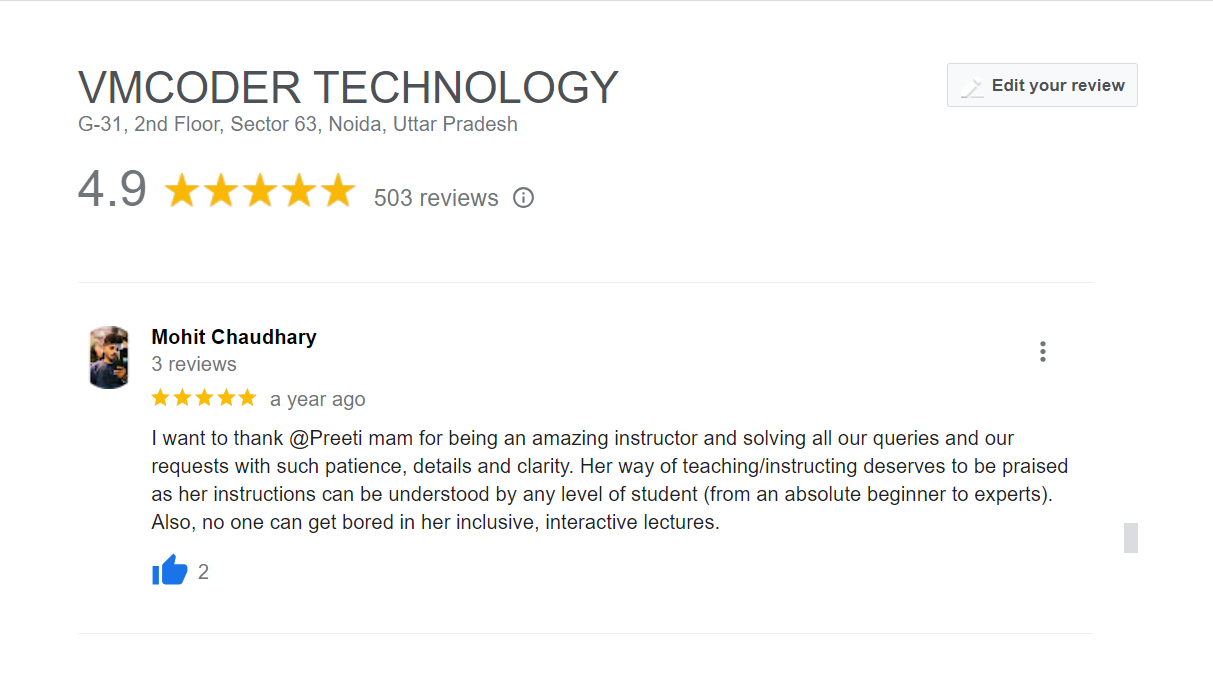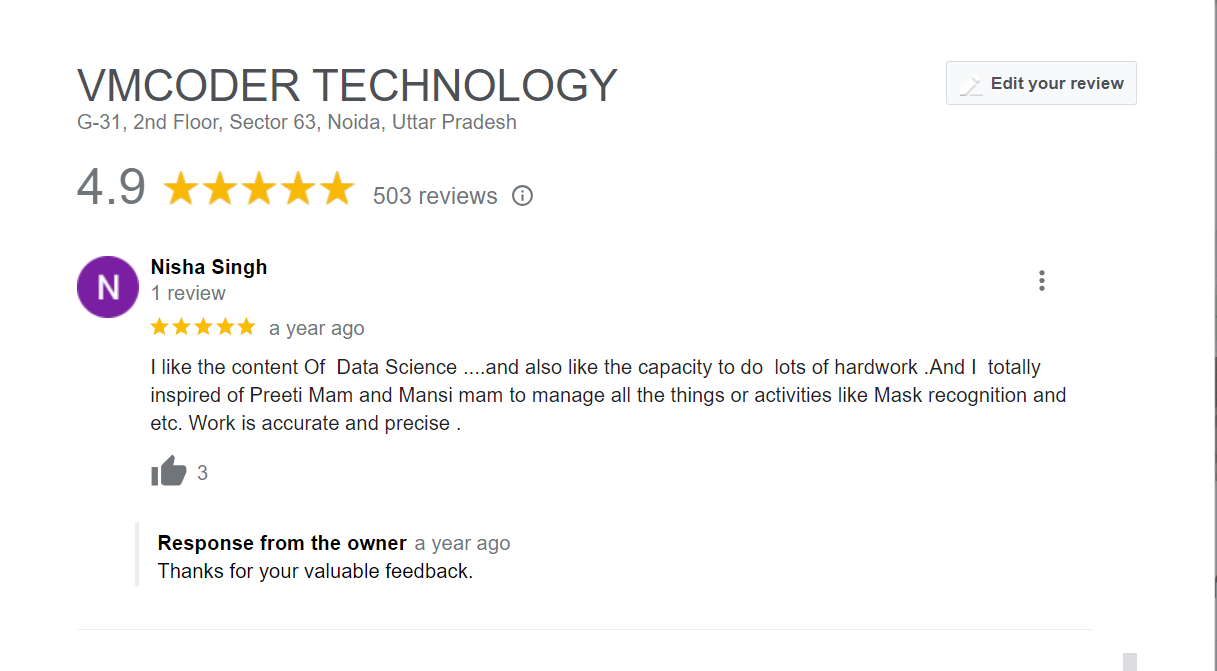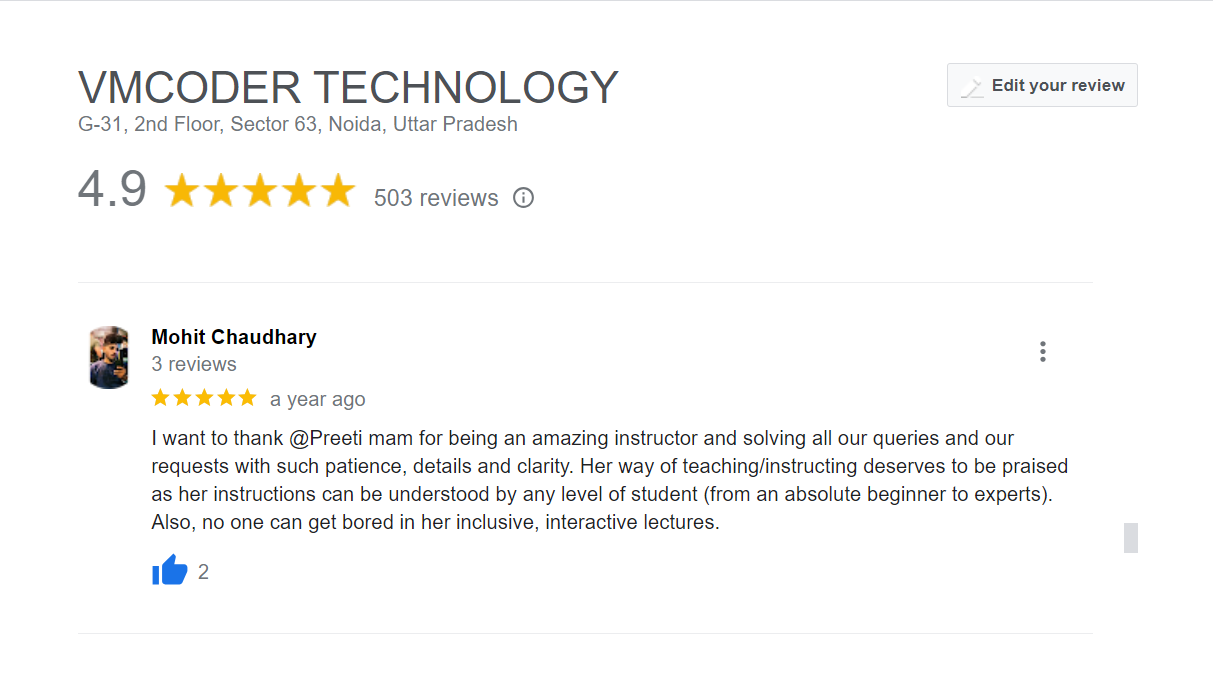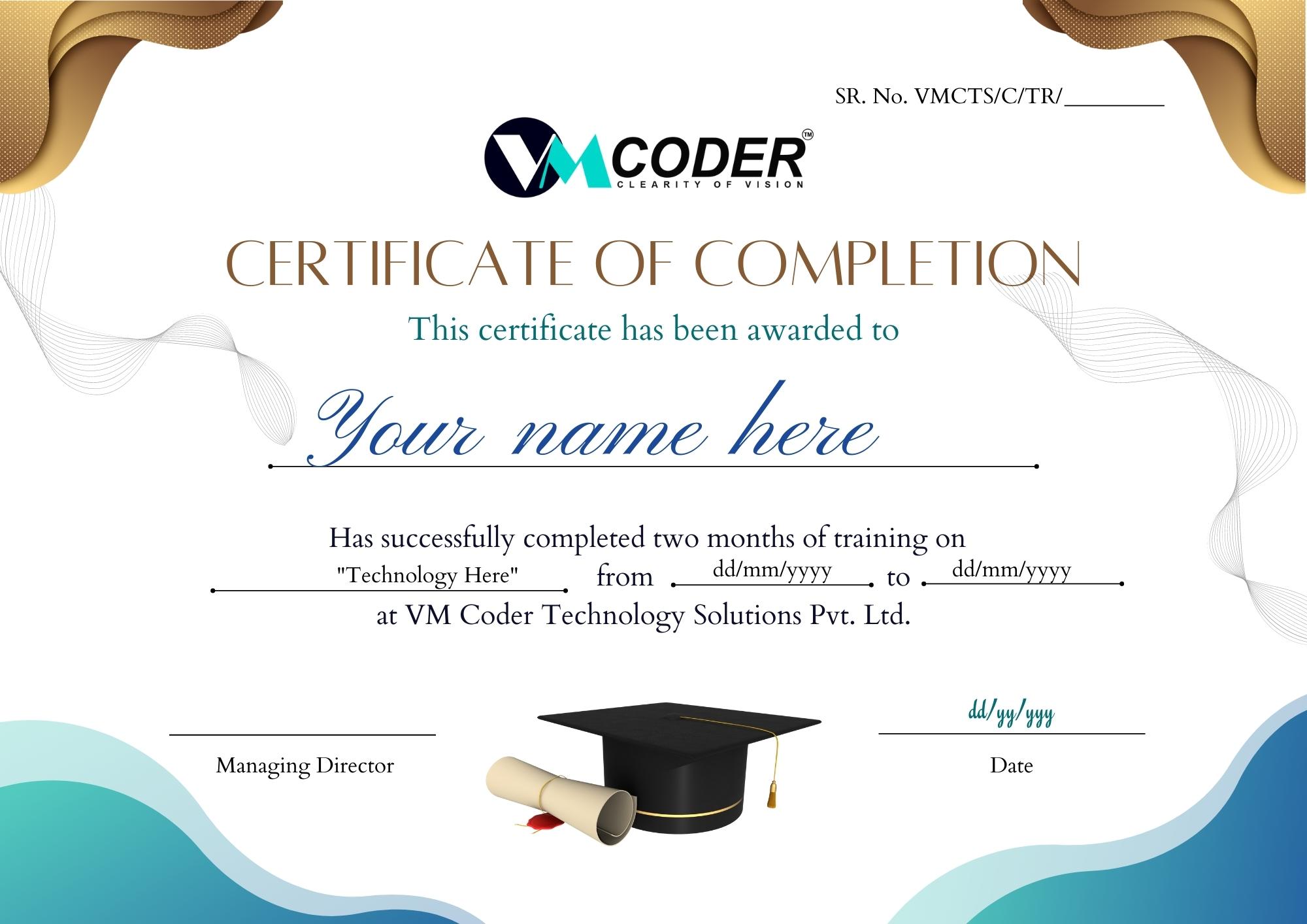Our Courses Overview
VM Coder offers Android App certification training to students who want to build a strong career in the IT industry. This training program focuses on providing comprehensive knowledge and practical skills required to develop, deploy, and manage Android applications.
Here's an overview of how VM Coder provides IT-based training in Android App development:
1. Extensive Curriculum: VM Coder's Android App certification training features a well-structured curriculum that covers fundamental concepts, best practices, and advanced topics related to Android app development. The curriculum is designed to provide a holistic understanding of the Android platform and its various components.
2. Experienced Instructors: The training is conducted by experienced instructors who have expertise in Android app development. These instructors possess practical industry experience and are skilled at delivering the course content effectively. They provide insights and guidance based on their real-world experience.
3. Hands-on Projects: VM Coder's training program emphasizes hands-on learning. Students are given the opportunity to work on practical projects that simulate real-world Android app development scenarios. This approach allows them to apply the knowledge gained during the training and develop essential skills.
4. Industry-Relevant Tools and Technologies: VM Coder ensures that students are exposed to the latest tools and technologies used in the Android app development industry. They provide access to relevant software development kits (SDKs), integrated development environments (IDEs), and other necessary tools. Students gain practical experience using these tools commonly employed in Android app projects.
5. Support and Guidance: VM Coder offers ongoing support and guidance to students throughout the training program. Instructors are available to address questions, clarify doubts, and provide guidance on projects. This support helps students stay on track and maximize their learning experience.
6. Certification: Upon successful completion of the Android App certification training, VM Coder awards students with a certification that validates their skills and knowledge in Android app development. This certification serves as a valuable credential and can enhance their employability in the competitive job market.
7. Career Assistance: VM Coder understands the importance of career development. They provide career assistance services to help students prepare for job interviews, refine their resumes, and connect with potential employers. This support aims to facilitate students' entry into the Android app development industry.
By enrolling in VM Coder's Android App certification training, students can gain in-depth knowledge of Android app development, acquire practical skills, and build a strong foundation for a successful career in the field. The comprehensive curriculum, hands-on projects, experienced instructors, access to industry-relevant tools, ongoing support, and certification provided by VM Coder contribute to empowering students in their Android app development journey.
Apply For Training
CURRICULUM & PROJECTS
- Introduction to Android Development
- Overview of Android platform and architecture
- Setting up the development environment (Android Studio, SDK, etc.)
- Android development tools and resources
- Java Fundamentals for Android
- Basic syntax and concepts of the Java programming language
- Object-oriented programming (OOP) principles
- Data types, control flow, loops, and conditional statements
- Android User Interface (UI) Design
- Building user interfaces using XML and layout files
- Views, layouts, and widgets
- Handling user input and events
- Styling and theming
- Activities and Intents
- Understanding activities and their lifecycle
- Creating multiple activities and navigating between them
- Using intents to communicate between activities and launch system components
- Android Storage and Persistence
- Working with SQLite database
- Content providers for data sharing
- Shared Preferences for storing app preferences
- Working with files and directories
- Networking and Web Services
- Consuming RESTful APIs
- Making HTTP requests and handling responses
- Parsing JSON/XML data
- Handling network connectivity and background tasks
- Multimedia and Location-Based Services
- Working with images, audio, and video
- Capturing media using the camera and microphone
- Utilizing location-based services (GPS, Google Maps, etc.)
- Notifications and Background Services
- Implementing notifications and status bar notifications
- Creating background services for long-running operations
- Scheduling tasks with AlarmManager
- Advanced Topics
- Fragments and their lifecycle
- RecyclerView for efficient list and grid-based views
- Using libraries and third-party frameworks
- Material Design guidelines and components
- Testing, Debugging, and Deployment
- Unit testing and test-driven development (TDD)
- Debugging techniques and tools
- Deploying apps to the Google Play Store
- App optimization and performance considerations
- Skill Development: Training programs provided by companies are designed to enhance specific skills required for the job. These programs can help individuals acquire new knowledge, improve existing skills, and stay updated with the latest industry trends.
- Career Advancement: Company-sponsored training often focuses on developing employees' competencies and preparing them for career growth opportunities. By participating in training programs, individuals can enhance their qualifications, increase their value to the company, and potentially open up new avenues for promotion or better job prospects.
- Increased Productivity: Well-structured training programs can improve employees' efficiency and effectiveness in their roles. By equipping individuals with the necessary knowledge and skills, companies can enhance overall productivity, leading to better performance and outcomes for both employees and the organization.
- Standardization and Quality Assurance: Training programs help establish standard procedures and best practices within an organization. By ensuring that employees are trained consistently, companies can maintain quality standards across different teams and departments, leading to better outcomes, customer satisfaction, and overall operational excellence.
- Personal Growth and Confidence: Training programs not only focus on professional skills but also contribute to personal growth. Employees gain confidence, expand their knowledge base, and develop a broader perspective through exposure to new ideas and experiences. This personal growth can have positive effects on both professional and personal aspects of their lives.
Training helps in to grow your career.
Google Reviews Of
VM Coder Technology









Effective Growth Strategies, Converting Websites & Online Marketing.
Obtain Your Accreditation
Showcase Your Accomplishments

Placement Support

Career Advisor

Mock Interviews

Coding Quiz








 VM Coder provides best training and they also prepare you for interview and now I am working as a Python developer in a IT company with a good salary package.
VM Coder provides best training and they also prepare you for interview and now I am working as a Python developer in a IT company with a good salary package.





